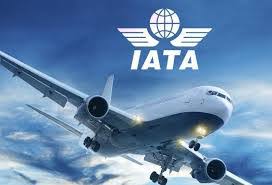The International Air Transport Association (IATA) has revealed that $1.3 billion belonging to international airlines remains blocked from repatriation by several governments as of April 2025. However, Nigeria is not on the list, maintaining a clean record for the second year in a row.
The blocked amount is a 25 percent improvement from the $1.7 billion figure recorded in October 2024, showing that some countries are making efforts to clear the backlog. Despite the progress, IATA insists that the situation remains a serious challenge for airlines trying to run their businesses smoothly.
For many years, Nigeria was among the countries where airlines had trouble getting their money out due to foreign exchange scarcity and policy delays. But in 2024, IATA confirmed that Nigeria had resolved all its trapped funds issues.
IATA’s Director General, Willie Walsh, said Nigeria made tremendous progress in clearing its backlog, which had reached $850 million at its peak in June 2023. According to Walsh, the situation at that time affected airline operations and finances, leading some airlines to cut routes or reduce flight frequency into Nigeria.
He praised Nigeria’s efforts and confirmed that most of the funds had now been successfully repatriated by the affected airlines.
Walsh urged other governments to remove barriers that prevent airlines from accessing and repatriating their revenues from ticket sales and other services. He noted that such delays violate international air service agreements and create currency exchange risks for carriers.
“Reliable access to revenues is critical for any business—especially airlines, which operate on very thin profit margins. Economies and jobs rely on international connectivity. Governments must realise that airlines can’t maintain routes and services if their revenues are locked away,” he said.
According to IATA, 10 countries are responsible for 80 percent of the blocked funds. These include:
Mozambique – $205 million
Algeria – $178 million
Lebanon – $142 million
XAF Zone – $191 million
Bangladesh – $92 million
Angola – $84 million
Pakistan – $83 million
Eritrea – $76 million
Zimbabwe – $68 million
Ethiopia – $44 million
Notably, Pakistan and Bangladesh, which were previously among the top five, have made significant progress in clearing their debts. Pakistan reduced its blocked funds from $311 million to $83 million, while Bangladesh cut its backlog from $196 million to $92 million.
IATA emphasized that allowing airlines to repatriate their funds in line with international treaties is key to ensuring sustainable airline operations. Airlines depend heavily on dollar-denominated transactions, and delayed access to earnings could lead to route cuts, fewer flights, and higher airfares.
Aviation analysts believe that Nigeria’s improved record sends a positive signal to international investors and could lead to more airlines resuming or expanding operations in the country.
They also urged the federal government to sustain the current progress by maintaining policies that support free and fair foreign exchange access, especially through cooperation with the Central Bank of Nigeria (CBN).
